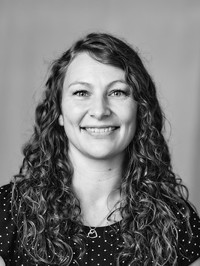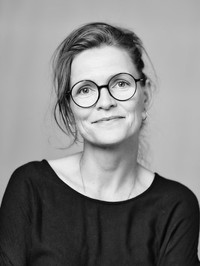Stop Medicine Waste
The project will generate knowledge on and identify areas with a high level of medicine waste in hospital departments.
Purpose
The purpose of the project is to generate knowledge and identify areas with a high level of medicine waste in hospital departments. Knowledge from the project will guide development and initiatives aiming to reduce medicine waste across the hospitals in the Region of Southern Denmark.
The project will investigate areas with medicine waste at departments at Odense University Hospital in Svendborg and the results will be qualified at the departments in Odense. The aim is to spread and scale the findings and experiences to the other hospitals in the region.
The end goal is to optimise and reduce the medicine consumption by decreasing medicine waste in the region.
Background
The green transition is of high priority in the Region of Southern Denmark. Odense University Hospital has been appointed lead of the medicine area with a special focus on how to reduce the climate and environmental impact coming from use of medicine in the region, and moving in the direction of sustainable medicine.
Calculations show that the use of medicine constitutes 25% of the total CO2 emission from the region. A number of potential areas within medicine have been identified and this project will focus on reducing the waste of medicine in hospital departments.
Every medicine room at the hospital has a bucket for medicine waste that is disposed of as hazardous waste. Currently, there is a clear waste of medicine at the hospital departments but the type and amount of waste is unknown.
It is key to investigate the type of medicine waste at the hospitals. This includes the amount of waste and excess medicine based on e.g. expired medicine. The investigation will serve as the foundation for optimising processes and for launching targeted initiatives for reducing the amount of medicine waste. Knowledge and findings from the project will be shared across the region and will support initiatives at other hospitals.
The Department of Pharmacology at Odense University Hospital is working on a number of projects and initiatives to investigate and reduce medicine waste. The findings from the project will guide these initiatives to be implemented at Odense University Hospital and, at a later stage, at the remaining hospitals in the region. This work will lead to a more sustainable and circular economy for the consumption of medicine in the region and a direct reduction of the carbon footprint coming from the hospital sector.
Expected Impact
Reducing medicine waste contributes to the regional goals of reduced and circular consumption and green procurement processes.
The project will also contribute with a positive impact on the region’s CO2 emission stemming from medicine waste by reducing the amount of hazardous waste to be disposed of and by reducing the amount of medicine to be purchased.
In 2022, 22,734 kilos of medicine waste from OUH were disposed of as hazardous waste. It is expected that the amount of medicine waste at OUH can be reduced by minimum 10% by reducing waste and optimising waste management.
It is expected that the project will also contribute with an economic benefit in terms of reducing the amount of medicine to be disposed and handled as hazardous waste and also by providing recommendations for optimised and reduced procurement of medicine, adjusted to the actual need and consumption.
Reducing medicine waste will:
- Reduce the amount of disposed medicine and medicine to be defined as hazardous waste with a negative climate impact
- Reduce expenses related to the procurement of medicine by optimising the procurement in relation to actual use and demand
- Contribute to securing supply chains as less waste will reduce the risk of supply challenges of certain types of medicine
- Directly reduce the CO2 emissions from the hospitals related to medicine waste.
Partnership
- The project is led by the Department of Pharmacology at Odense University Hospital by Chief Physician Mette Marie H. Christensen (project owner for the lead area “Sustainable medicine”) and Project Manager MD and Ph.D. Sidsel Arnspang Pedersen
- Hospital Pharmacy Funen is responsible for collecting data on medicine waste
- The Health Innovation Centre of Southern Denmark is responsible for process facilitation, conceptualisation and development of materials for implementation.
Project period
- The project runs from 2023 to 2024.
Feel free to contact

Caroline Strudwick
Specialkonsulent, udviklingskoordinator
Brugercentreret Innovation
40 24 75 87 Caroline.Strudwick@rsyd.dk Caroline Strudwick på LinkedIn

Stine Poulsgaard
Innovationskonsulent, designer MA
Brugercentreret Innovation
29 12 08 05 Stine.Poulsgaard@rsyd.dk
